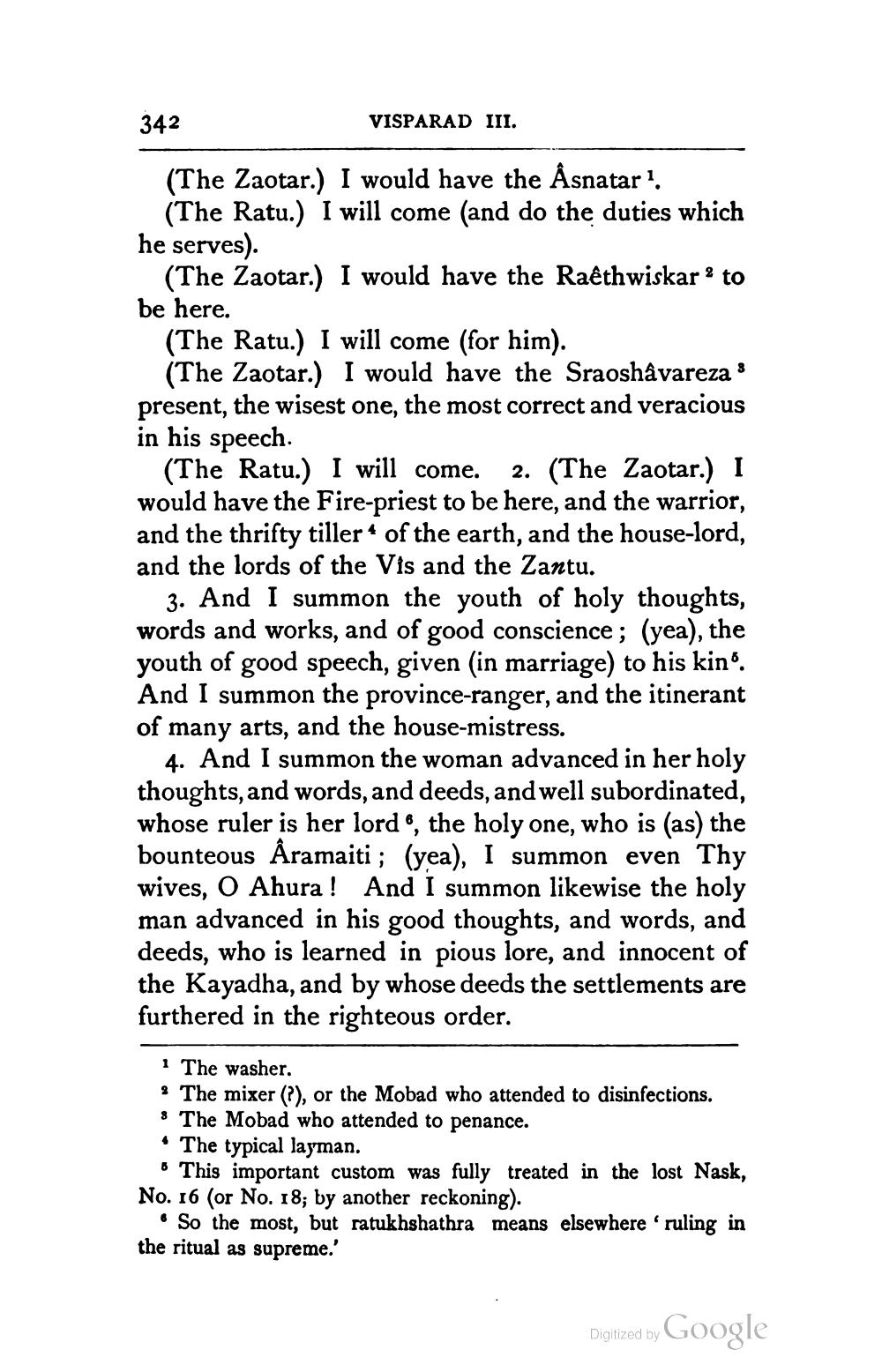________________
342
VISPARAD III.
(The Zaotar.) I would have the Åsnatar 1.
(The Ratu.) I will come (and do the duties which he serves).
(The Zaotar.) I would have the Raêthwiskar to be here.
(The Ratu.) I will come (for him).
(The Zaotar.) I would have the Sraoshavareza 8 present, the wisest one, the most correct and veracious in his speech.
(The Ratu.) I will come. 2. (The Zaotar.) I would have the Fire-priest to be here, and the warrior, and the thrifty tiller of the earth, and the house-lord, and the lords of the Vis and the Zantu.
3. And I summon the youth of holy thoughts, words and works, and of good conscience; (yea), the youth of good speech, given (in marriage) to his kino. And I summon the province-ranger, and the itinerant of many arts, and the house-mistress.
4. And I summon the woman advanced in her holy thoughts, and words, and deeds, and well subordinated, whose ruler is her lord ®, the holy one, who is (as) the bounteous Aramaiti ; (yea), I summon even Thy wives, O Ahura! And I summon likewise the holy man advanced in his good thoughts, and words, and deeds, who is learned in pious lore, and innocent of the Kayadha, and by whose deeds the settlements are furthered in the righteous order.
1 The washer.
The mixer (?), or the Mobad who attended to disinfections. 8 The Mobad who attended to penance. • The typical layman.
* This important custom was fully treated in the lost Nask, No. 16 (or No. 18; by another reckoning).
• So the most, but ratukhshathra means elsewhere 'ruling in the ritual as supreme.'
Digitized by
Digitized by Google




